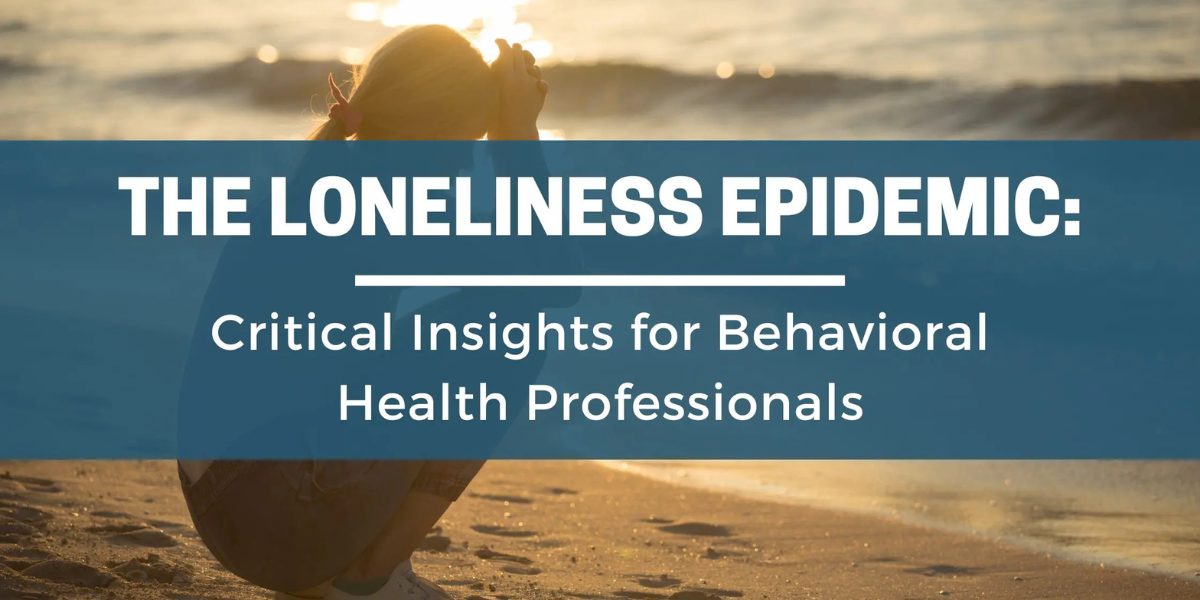Blog > Emerging Trends > How to Help Clients With Political Obsession Disorder
Political Obsession Disorder: How to Support Clients with an Unhealthy Obsession with Politics
Political obsession disorder is an emerging mental health concern in today’s hyper-polarized world. Many clients are developing an unhealthy obsession with politics — marked by anxiety, burnout, compulsive news consumption, and strained relationships. This guide for behavioral health clinicians explores how to recognize, assess, and treat political preoccupation using tools like DBT and media boundary-setting. Learn how to support clients who feel depressed about politics and navigate the complex intersection of politics and mental health in clinical practice.

Last Updated: October 9, 2025


What You'll Learn
-
How to recognize signs of political obsession disorder, including compulsive media use, emotional burnout, and interpersonal conflict
-
Why some clients develop an unhealthy obsession with politics and how identity fusion fuels emotional distress
-
Evidence-based strategies like DBT, mindfulness, and media boundaries to reduce political rumination and restore balance
-
Tips for maintaining therapeutic neutrality when working with clients who feel depressed about politics or consumed by political content
-
How to use ICANotes and the free Political Obsession Disorder Screening Tool to support documentation, treatment planning, and clinical insight
Contents
- What Is “Political Obsession Disorder”?
- The Psychology Behind an Unhealthy Obsession with Politics
- Clinical Strategies for Treating Political Obsession Disorder
- Clinical Caveats and Ethical Considerations
- How ICANotes Supports Treatment of Political Obsession Disorder
- Conclusion – Navigating Politics and Mental Health in Therapy
In an increasingly polarized climate, political discourse is triggering more than spirited debate, it’s fueling a growing mental health concern. While not a formal DSM-5 diagnosis, Political Obsession Disorder is a term clinicians are using to describe clients who experience an unhealthy obsession with politics characterized by compulsive news checking, emotional distress, and relationship conflict. Many are reporting feeling depressed about politics, hopeless about the future, and overwhelmed by a 24/7 media cycle.
For behavioral health clinicians, these clients require more than political neutrality — they need structured interventions, clinical clarity, and tools to regulate emotion and identity. This guide explores how to recognize, assess, and treat symptoms of political obsession within a trauma-informed, strengths-based framework and how to document them effectively in your EHR.
What Is “Political Obsession Disorder”?
Political Obsession Disorder refers to a cluster of symptoms where political content dominates a client’s thoughts, emotions, and behaviors to the point of functional impairment. While it's not officially recognized in diagnostic manuals, many clinicians are seeing patterns that mirror anxiety, obsessive-compulsive features, and identity-based trauma.
Clients struggling with political obsession often:
- Spend hours daily consuming political media
- Feel intense anger, anxiety, or despair related to political events
- Experience ongoing conflict over politics with family, friends, or colleagues
- Report trouble sleeping, concentrating, or disconnecting from the news
- Say they feel depressed about politics or hopeless about societal change
It’s important to differentiate civic engagement from maladaptive political fixation that leads to burnout, disconnection, or psychological distress. Identifying this tipping point is essential for effective intervention.
Concerned your client may be struggling with a political obsession?
Our free, clinician-designed Political Obsession Disorder Screening Tool helps you quickly assess patterns of compulsive news consumption, emotional reactivity, and interpersonal conflict related to politics.
Use this 12-item screening tool to explore how political stress, identity fusion, and compulsive behaviors may be affecting your client’s functioning. The tool includes scoring and clinical interpretation guidance.
The Psychology Behind an Unhealthy Obsession with Politics
For some clients, political identity becomes a stand-in for emotional regulation, community, or even existential meaning. In therapy, this can present as rigidity, black-and-white thinking, or catastrophizing. The constant exposure to outrage-inducing content — combined with chronic stress and algorithmic reinforcement — can result in an unhealthy obsession with politics that mimics cluster B personality traits or trauma reactions.
Clinicians should evaluate:
- Underlying diagnoses: Political obsession may mask anxiety, OCD, PTSD, or depressive disorders
- Social identity fusion: Politics becomes inseparable from self-worth or belonging
- Algorithmic addiction: Newsfeeds designed to trigger dopamine/anger cycles reinforce compulsive checking
- Emotional dysregulation: Symptoms mirror those seen in borderline or narcissistic traits, especially when politics becomes relationally disruptive
Clinical Strategies for Treating Political Obsession Disorder
When clients present with a political obsession, the therapeutic goal is not to disengage them from civic life, but to reduce emotional overwhelm, compulsive behaviors, and identity fusion. The following interventions can help restore balance:
1. Validate the Underlying Emotions
Clients who are depressed about politics often carry deep fears about the future. Instead of dismissing their concerns, acknowledge their pain while helping them identify how their emotional responses are being shaped by constant exposure to distressing content.
2. Use Dialectical Behavior Therapy (DBT) Techniques
DBT's emotion regulation and mindfulness skills are particularly helpful for clients caught in cycles of political reactivity. Techniques like “wise mind,” distress tolerance, and radical acceptance can help clients create distance between themselves and political stimuli.
3. Set Digital and Media Boundaries
Encourage clients to develop intentional media routines. Suggest scheduled “news breaks,” social media detoxes, or screen-time limits. For some, uninstalling news apps or creating “no politics” zones in the home can reduce symptoms of political obsession disorder.
4. Rebuild Identity Beyond Politics
Clients with an unhealthy obsession with politics may feel that disengaging is morally wrong. Reframe this as self-care, not abandonment. Help clients rediscover identity domains that aren’t tied to ideology — like creativity, spirituality, or relationships.
5. Model Respectful Dialogue and Boundaries
Therapists are often the only neutral party in a politically volatile environment. Model how to hold space for disagreement without escalation. Teaching interpersonal effectiveness skills helps reduce black-and-white thinking and relational volatility.
Clinical Caveats and Ethical Considerations
Political topics are inherently charged, and clinicians must monitor their own reactions carefully. Use supervision to process personal biases or strong emotional responses. Refrain from sharing your own views, and focus instead on helping clients restore function, reduce distress, and reconnect with their values.
Remember, political obsession disorder is not about political orientation, it's about emotional over-identification and dysregulation. Center the conversation on mental health and resilience.
How ICANotes Supports Treatment of Political Obsession Disorder
Working with clients overwhelmed by politics requires documentation that captures nuance, emotional tone, and behavioral patterns. ICANotes provides the structure clinicians need to document these cases thoroughly and defensibly.
1. Narrative Documentation with Precision
ICANotes’ menu-driven interface enables clinicians to easily document thoughts like hopelessness, compulsive media use, emotional dysregulation, and social withdrawal tied to political stress — all while preserving narrative flexibility. This ensures your documentation reflects the clinical picture accurately and supports medical necessity.
2. Track Related Diagnoses and Symptom Clusters
Even though political obsession disorder isn’t a formal diagnosis, you can use ICANotes to track relevant symptoms under codes for anxiety, OCD, PTSD, or adjustment disorders. The system supports provisional diagnoses and documentation of social and environmental stressors.
3. Built-In Templates for DBT and CBT
For clients experiencing an unhealthy obsession with politics, therapeutic approaches like DBT and CBT are often first-line treatments. ICANotes includes built-in templates for both modalities, helping you record therapeutic goals, interventions, and outcomes effectively.
4. Secure Telehealth and Client Portal
Clients may avoid in-person therapy during election seasons or periods of intense political unrest. ICANotes includes HIPAA-compliant telehealth and a secure patient portal for seamless, remote continuity of care.
5. Progress Tracking for Politically-Induced Distress
ICANotes helps you monitor symptom trends over time and tailor treatment plans to reflect evolving client needs — whether that includes media consumption goals, interpersonal boundary setting, or emotion regulation objectives. ICANotes’ built-in treatment planning tools help keep care focused and goal-oriented.
Frequently Asked Questions
Conclusion: Navigating Politics and Mental Health in Therapy
While political obsession disorder may not be a billable code, its effects on client well-being are very real. Left untreated, an unhealthy obsession with politics can lead to emotional exhaustion, relationship breakdowns, and functional decline.
As clinicians, we're tasked with helping clients navigate distressing cultural and political landscapes—without losing sight of their emotional well-being. Addressing political obsession disorder requires both clinical insight and reliable tools for documentation, tracking, and treatment planning.
If you're looking for an EHR that supports your work with complex mental health presentations — including those rooted in politics and mental health — ICANotes can help. Our behavioral health platform is designed to streamline documentation, support evidence-based therapies like DBT, and help you deliver high-quality care with less administrative stress.
Start your free trial of ICANotes today and see how our purpose-built EHR empowers you to treat the whole person, even in a polarized world.
Start Your 30-Day Free Trial
Experience the most intuitive, clinically robust EHR designed for behavioral health professionals, built to streamline documentation, improve compliance, and enhance patient care.
- Complete Notes in Minutes - Purpose-built for behavioral health charting
- Always Audit-Ready – Structured documentation that meets payer requirements
- Keep Your Schedule Full – Automated reminders reduce costly no-shows
- Engage Clients Seamlessly – Secure portal for forms, messages, and payments
- HIPAA-Compliant Telehealth built into your workflow
Complete Notes in Minutes – Purpose-built for behavioral health charting
Always Audit-Ready – Structured documentation that meets payer requirements
Keep Your Schedule Full – Automated reminders reduce costly no-shows
Engage Clients Seamlessly – Secure portal for forms, messages, and payments
HIPAA-Compliant Telehealth built into your workflow
Related Posts
About the Author
Donald Morrison graduated from UNC Charlotte in 2004. He has since worked as a school-based therapist, inpatient social work supervisor and outpatient clinician. Donald currently works in private practice, and he is also an adjunct faculty member at the UNC Charlotte School of Social Work. In addition, Donald serves as a clinical supervisor to LCSW associates, and he regularly presents at area mental health conferences and seminars.






